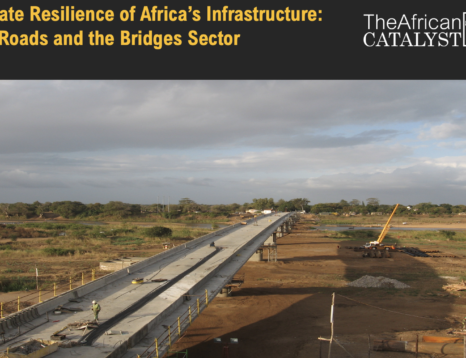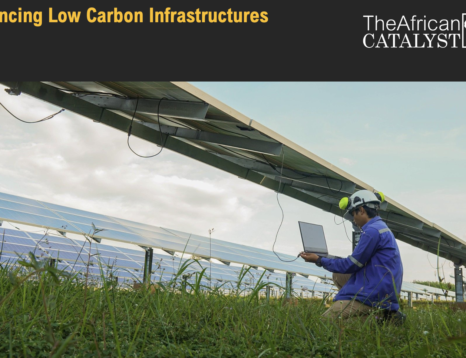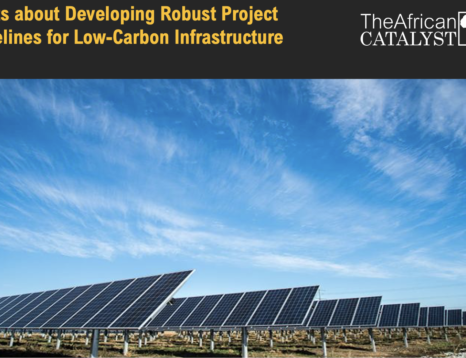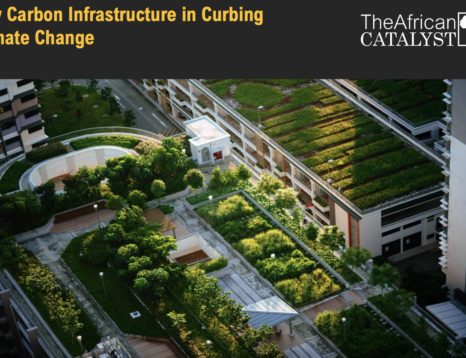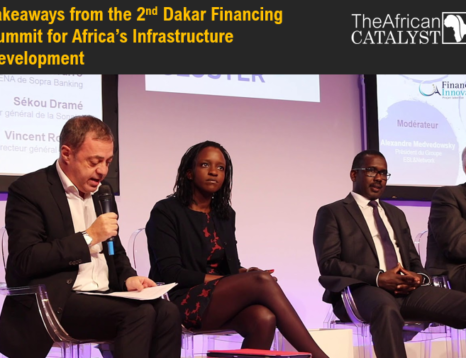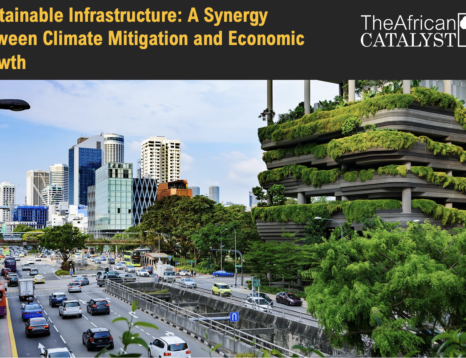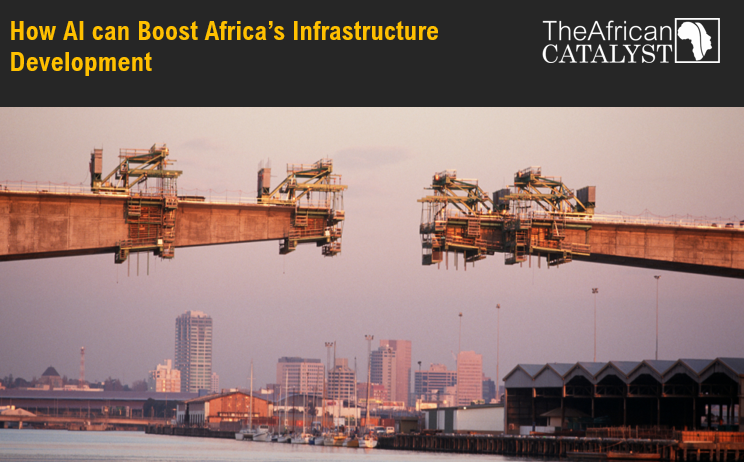
According to Further Africa, even the construction industry, generally regarded as a laggard in the adoption of cutting-edge technology, surprisingly has been quick to warm up to AI. Resistance to change to digital experiences and the many manual, repetitive tasks hobble the construction industry with project delays, cost inefficiencies, and undermined productivity, health, and safety performance.
Using artificial intelligence can be an important first step to addressing Africa’s infrastructure gap by allowing policymakers to benefit from having better information at their disposal and making more informed decisions. AI’s impact on improving workplace safety and productivity is likely to be several orders of magnitude larger than its potential impact on job losses.
This article by The African Catalyst reviews Further Africa’s publication on the role of AIs in boosting Africa’s Infrastructure Development.
AIs in Africa’s Infrastructure Development
According to Further Africa, using artificial intelligence can be an important first step to addressing Africa’s infrastructure gap by allowing policymakers to benefit from having better information at their disposal and making more informed decisions.
The construction industry is ready to receive the potential process, health, safety, and production benefits from developing and implementing artificial intelligence.

AI is changing every aspect of the infrastructure development process from predicting demand for new construction projects to designing materials and even constructing buildings.
A related article by Business World published June 27, 2022, adds that the technology is particularly useful in planning and designing phases, where it allows for advanced generative design capabilities for BIM or 3D modeling. Under generative design, the computer generates several hundred-design options based on certain predetermined goals or constraints.
When it comes to onsite construction, modern safety, monitoring, and maintenance systems are today using advanced AI capabilities to predict and warn supervisors about adverse safety situations automatically. In doing so, these systems minimize the role of human error in any adverse incident.
It is quite an interesting and exciting time to consider artificial intelligence’s impressive potential and witness the field’s developments. There is enormous potential to adopt digital technology in the construction industry in Africa to improve performance and productivity.
The value of the AI construction market was estimated to be USD 466.9 million in 2019. Projections estimate that by 2025, the market value will skyrocket to US$2312.8 million with a compound annual growth rate (CAGR) of 33.87 per cent between 2020 to 2025.
Despite not gaining early adoption within the construction sector as in other areas, AI is now ideally positioned to lead transformative reforms within the sector.
According to an article by majesteye.com dated February 16, 2022, several studies and reports have shown that the adoption of AI applications within the infrastructure sector is growing at a rapid pace.
Some of the major drivers of this growth include the following:
Increased Demand for New Construction Projects: The global population is growing rapidly, and this is driving demand for new construction projects. AI can help to predict and meet this demand by forecasting future needs and trends.
The Need for Improved Efficiency and Safety: The infrastructure development process is often slow, expensive, and risky. AI can help to improve efficiency and safety by automating tasks such as material design and construction.
The Need for Innovation: Construction companies need to focus on innovation and efficiency improvements to stay competitive in the global market. AI provides infrastructure developers with an opportunity to do just that.
The Demand for Heavy Data Processing: The large amounts of data generated by infrastructure projects, such as location-based services, requires advanced computing power and capabilities if it is to be processed effectively. AI can help achieve this by completing complex tasks quickly and efficiently.
Now, there are several ways in which AI is transforming the infrastructure development process in Africa. AI can help to overcome significant changes made during the planning and design phase. The major cost overruns or delays that affect other phases of the project can be overcome by incorporating more accurate data on the project’s lifecycle as well as allowing for optimization of resources and processes such as material design, scheduling, and planning.
Read more here.






